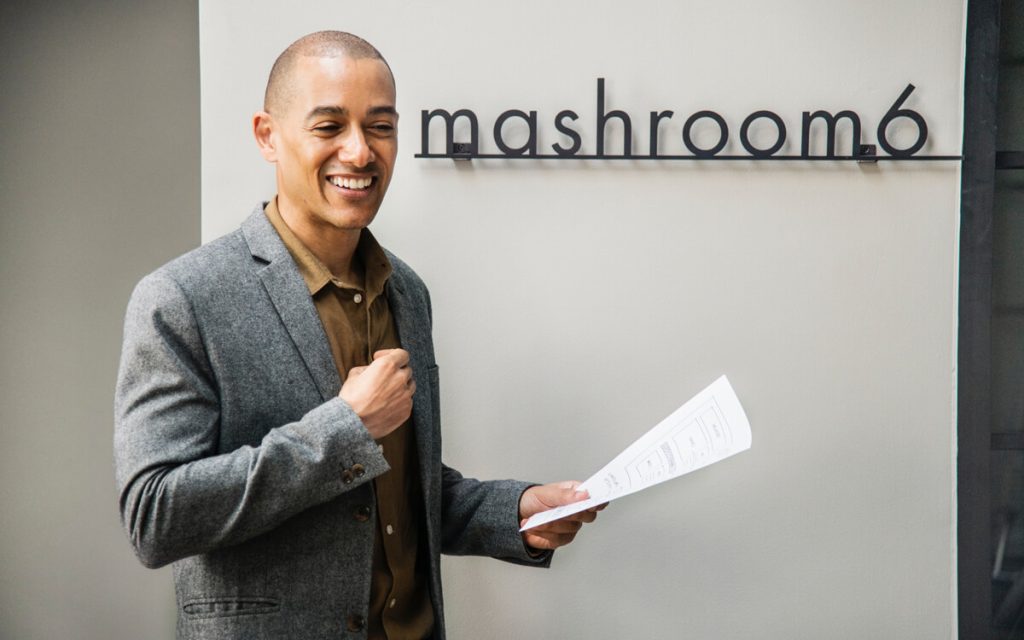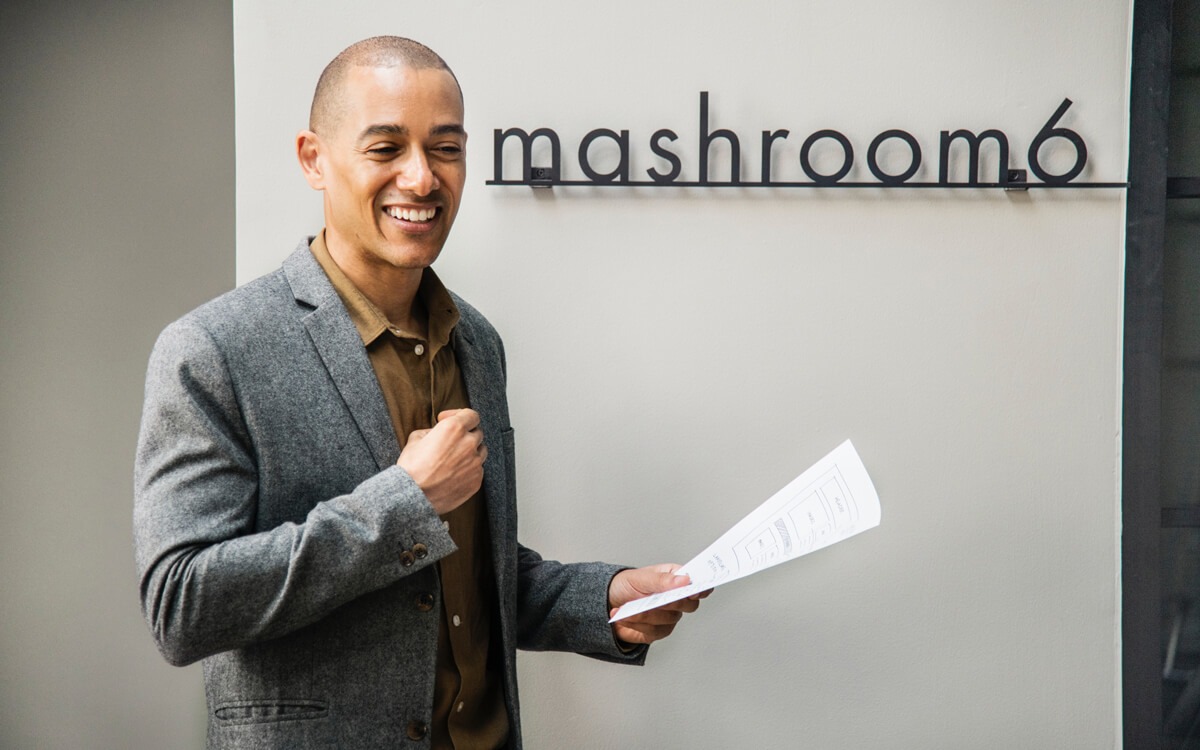
Leading organisations can be lonely and a coach and mentorship make a real difference. This is especially true when you are an inexperienced CEO in a small startup or a fledgling scale-up. No surprise! What is not well understood, however, is that the type of coach or mentor that is needed shifts as you move from start-up to the scale-up. One size definitely does not fit all, in this case.
According to Wayne Hartman, lead coach and mentor in the 10X-e Accelerator Program, the typical startup CEO is in a race to develop the company’s business model while scratching together the funding to keep going.
“They are experiencing technical and financial problems on a day-to-day basis and everyone does everything. There are wonderful energy levels, mostly from that founder to a small team enthused about the mission amidst the daily chaos that the founder and team are trying to order”.
What does a scaling business look like?
Wayne says: “Once the business model is nailed down, it is time to grow, to scale the business and you can’t scale chaos. The chaotic world of the founding team begins to change because if you scale the disorder, it will eventually collapse under the weight of complexity.” Thus, order and systemisation become the focus, allowing a cut-and-paste approach with replicable processes. Technology is needed to run the business, not just deliver the product. An organisation has to be built using specialists instead of your family and friends who are cheaper cost but can be limited in capacity.
The new hires aren’t as close to the founder, so deliberate steps have to be taken to maintain the culture of the organisation. Energy levels dissipate as the organisation grows and the strong egos that created mojo in the startup phase now start causing problems for people who joined to do a job and they, for the most part, aren’t interested in the quirks and foibles of eccentric founders. ‘Other people’s money’ is now involved, and a more balanced approach to risk-taking is required to satisfy external funders or investors.
Two very different stages with very different solutions.
“An environment of risk-taking focused on technical problems shifts to a more conservative world where managing people is the biggest problem facing the CEO. What makes for success in the cases of a startup is often a hindrance in the case of a scale-up business. The founder CEO needs help in navigating the ocean between the two and surviving in the new world – one that is often alien! These differences are often not understood due to a lack of prior experience. A good coach and mentor helps with the realization of the differences and the adaptation processes” Wayne continues.
According to Wayne, while the attributes needed in a coach/mentor do shift, there is much that is common to both environments:
– Chemistry and a sense of humor need to fit together. Building a business is stressful and you, as CEO need to get on well and be able to feel comfortable with sharing your highs as well as your lows;
– You, as a founder CEO are often a strong-willed individual who believes you know more than you actually do. Persuasiveness and persistence are needed from a coach to get the right outcomes for the business and personal growth;
– Relevant experience. The coach and mentor needs to have seen what good looks like, and bad! Scars and the associated war stories add to that credibility, so when looking for a coach and mentor look for someone who has spent time in the trenches;
– Empathy balanced with honesty. When things are a mess that message delivered by the coach has to land in a way that is tough on the subject but soft on the CEO;
– Asking questions rather than giving answers, being willing and able to shift from big picture to detail when needed;
– A sense of realism and an understanding of what is achievable;
– An ability to inspire because the founder CEO environment is a lonely place and you will need encouragement; and
– Courage to step away if the coach can no longer add value!
Culture is a crucial element in scaling effectively
So, a lot is common, but what changes from start-up to scale-up? What should a coach or mentor have in their toolbox for this specific stage of business growth?
– A bias towards processes is critical, pushing the CEO to anchor processes each time a problem gets solved, resulting in big wins. Map the key processes and define what good compliance looks like and how it can be measured;
– Understanding how systems and automation make scaling easier will help the coach encourage less manual ways to make things happen. Operations become more predictable and delivery more reliable. You cannot get happy customers at scale with lots of manual processes;
– Efficiency and value-for-money make an appearance. Cash demands ramp up significantly as you grow. Low cost, DIY solutions vs spending money on comprehensive solutions. A corporate background will certainly equip the coach with many examples of over-engineering systems and bureaucracy. You want the structure without the red tape, just enough to get the job done efficiently in a resource light environment;
– The coach needs to know a lot more about many more subjects to be able to coach and mentor in a scale-up environment. From agile start-up, industry and funding know-how to a wider range of knowledge from strategy development and execution, broader financial, customer and stakeholder management, sales and marketing, operations, to systems, processes and people!
– The coach and mentor cannot possibly know every topic in sufficient depth to guide a scale-up organisation through the detail of every change needed. But the coach will have a network of specialists for support and judgement to know when to call on them or refer them elsewhere. I am an experienced generalist who knows lots about lots of things, but not everything about everything.
– The coach needs a healthy dose of humility and the ability to judge when they need someone with more knowledge than themselves. Personality and habit profiles would be an example in my practice. I have worked with them for many years and can interpret them, but I just don’t see what, for example, my psychologist friend Steve does. Sometimes what he sees is the key to solving a problem. And the same goes for operating financial controls. I get 90% done but my good friend Henry is my go-to guy when the business needs intensive financial care.
– The people side is often the biggest shift. Culture is a crucial element in scaling effectively! The ego-driven founder CEO cannot be a d*ck anymore, especially when the business footprint spans countries. You need to guide movement in this space! It helps if the coach and mentor has managed culture elements in businesses themselves.
– Understanding the type of people needed for the game plan and different roles is important. I have seen conservative managers (not leaders) destroy an entrepreneurial culture in a matter of months. On the flip side, entrepreneurs need a steady hand in supporting the structures of the business. In my experience, the combination of an entrepreneur CEO and a more conservative CFO works in this case. Needs will shift, and the coach will need to guide organisational transition.
“Above all else, the coach and mentor has to find a way to make the process fun – both mentor and your mentee need to look forward to your interactions,” Wayne concludes.
About the author: Wayne Hartmann is an experienced coach and mentor to businesses in the world of scaling up. He is the founder of H2 Business Consulting and a lead coach and mentor in the 10xe Accelerator Program and provides critical support to the 1% of elite scaling businesses in South Africa.






